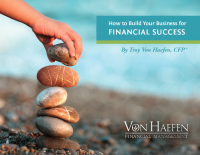
How do you eat a piece of cake? Do you eat the cake part first and leave the icing to be relished at the end? Or, do you take a more balanced approach, and grab a bit of each in every bite? Maybe you go straight for the prize and delve into the frosting without remorse. Well, interestingly enough, our habits (even how we eat) can say a good deal about many areas of our life.
M. Scott Peck wrote in one of his books that he had a major breakthrough with a therapy patient after witnessing her eating a slice of cake. She went right for the icing! He determined that she struggled to delay gratification.
Delaying gratification is a major aspect of Financial Planning, especially planning for retirement. Isn’t shoveling money away for retirement delaying our gratification? For some it’s easy to do, and for others it’s very difficult.
Delaying gratification is directly correlated to our willpower. While we need not deprive ourselves to the point of pain and misery, we do need to strike a balance and take some short term pain for long term gain.
If you have read enough of my blog postings, you should understand my views on balance and how important I feel it is in our financial world. But, I do know there are many people out there who struggle with balance and delaying their gratification, which is easy to do in today’s society which pushes towards consumerism at a blistering pace.
If you find yourself struggling and not able to delay your gratification, here are a few tips that should help out.
Use a Spending Plan
I hesitate to use the term budget because it’s a word synonymous to pain (so let’s say Spending Plan), but using some type of tracking tool can really help shed light of the problem areas. Most folks don’t know where their money goes every month, and that’s a problem. If you don’t know where it goes, how do you know if you have any to save, spend, or invest?
If you’re the type (impulse buyer) that buys a new pair of shoes because you saw some celeb sporting them in a new commercial, a spending plan may be helpful. Remember a spending plan is not meant to be restrictive: it’s meant to be informative. Information is king, and knowing how much you have to save, spend, and invest is the key to financial success.
Reward Yourself
I speak quite often to clients about rewarding themselves along their financial journey. Even those who struggle with debt and over-spending need to be reminded of their successes. I don’t believe in the all or nothing approach….that’s not balanced.
A good example involves the use of a budget. If you track your spending for a month and learn you have $1000 left over at the end of the month because you worked hard to delay your gratification (staying away from unplanned and useless spending), I feel it is well worth it to reward yourself. You will be surprised at how good you feel about your purchase when you get to this point. Dangling a financial carrot in front of your nose may be the incentive you need to get heading in the right financial direction.
Automate Savings
You probably have heard of the philosophy of paying yourself first. This implies the theory of paying yourself in the form of savings before you spend the rest of your cash flow. A couple ways to do this are through the use of retirement accounts and automated savings accounts.
My preference (for the most part) would be with retirement accounts. Of course, this is with the assumption that there is enough emergency cash in place. My choice here lies in the fact that many retirement contributions are pre-tax and save tax dollars. If you can have your employer withhold 10% of your earnings and then have them match a portion of that contribution, while you save tax dollars, you have hit a home run!
If you don’t have access to a retirement account, or you already have maxed out your retirement contributions, you can set up an automated deposit into a savings account. Sometimes an amount as small as $50 or $100 a month can be a great step in the right direction to delaying gratification. If this is the first step for you, it’s important to move slowly and pat yourself on the back for your successes.
When we create balance in our financial world we can equally enjoy today and tomorrow. Sure, it involves delaying some gratification. Just like the cake…..if you eat the icing first, disappoint will follow. Many folks who spend their money before they make it find themselves depressed and pessimistic about their financial future. Spend some time creating balance and delaying gratification and you should feel a surge of accomplishment and optimism about your financial future.
How much we save, spend, and pay in taxes are the big three areas in our lives that we can control, and we sometimes need help to see the big picture. If you find yourself confused, frustrated, disappointed, or just plain scared about your financial future, it may be time to talk with a fee-only financial advisor. The Alliance of Cambridge Advisor is a great organization of fee-only advisors, which has advisors throughout the US. You can find an advisor in your area by clicking here.


